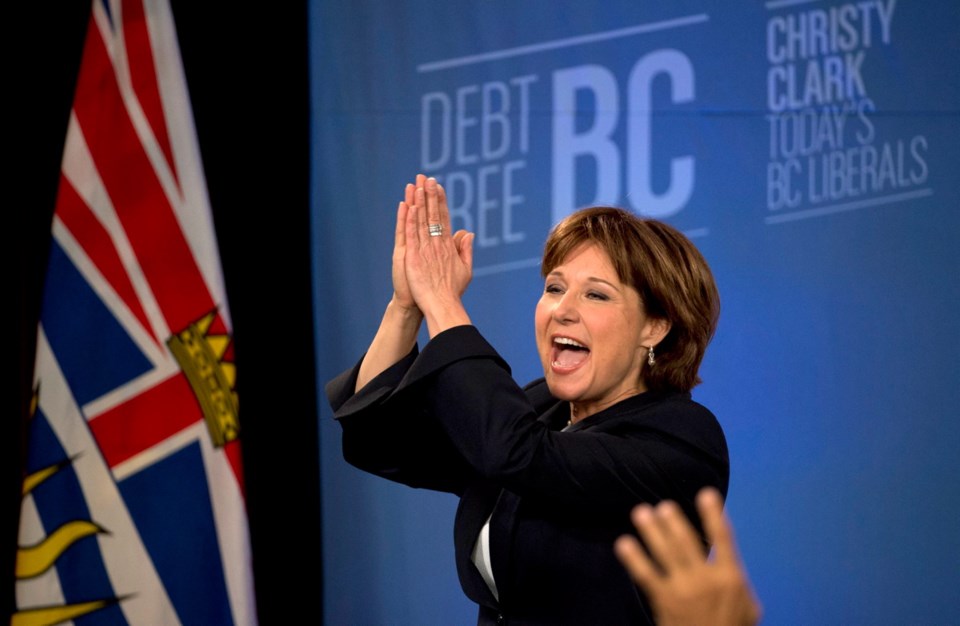Paul Fraser, B.C.’s conflict of interest commissioner, has no problem with Premier Christy Clark accepting a $50,000 salary top-up from her party. Here’s the background.
Clark attended one or more private meetings with well-heeled individuals who paid large sums for the privilege of a face-to-face sitdown with her. That, in itself, seems problematic.
The B.C. Members’ Conflict of Interest Act states: “A member has a conflict of interest when the member … performs an official … function … [knowing] … there is the opportunity to further his or her private interest.”
Clark surely hoped these meetings would profit her party, in the form of donations. No one is suggesting she accepted a brown paper bag stuffed with $100 bills. But it was clearly in her interest, financially and otherwise, to remain in office.
As premier, Clark earns $195,000. That seems to me to meet the legislative criterion of furthering one’s private interest.
However, a further complexity arose. It turns out the B.C. Liberal Party gives Clark an additional $50,000 top-up to her salary.
Two NDP MLAs complained to Fraser that this had at least the appearance of a conflict, since Clark was being paid for (among many other things) attending these meetings.
Fraser rejected the complaint on the grounds that whatever benefit Clark received was too far removed to qualify as a conflict. In effect, she was just doing her job.
There is some strength in this argument. It takes money to win elections — lots of it.
And how are parties to raise funds other than through donations? If the premier attends a rally in Victoria where 1,000 people pay a $5 entrance fee to hear her speak, is that to be forbidden?
But there are two problems with this train of logic.
The first has to do with the size of the fee paid for those face-to-face meetings. No reasonable person thinks a $5 donation is going to buy them any favours.
But how about a $20,000 gift? I don’t know how much was charged for those sit-downs with the premier, but I’m sure it wasn’t $5.
Second, no one attending a rally expects more than a handshake or a smile from the premier. But a face-to-face meeting is a different beast. At a minimum, you get a hearing and a chance to press your case. Indeed, that is the whole point in people paying these large fees — the lively expectation of a future reward.
If this isn’t a conflict of interest, it sure looks like it. And it turns out most members of the public agree.
A recent Angus Reid poll showed that 81 per cent of Canadians oppose salary top-ups of the kind Clark received. And in B.C., 86 per cent were opposed — the highest level of disapproval in the country.
But the conflict legislation makes it clear that a member need only commit an action that creates a “reasonable perception” of conflict. By that standard, Clark is well and truly guilty.
There’s a simple solution to this eyesore. Get rid of salary top-ups. Most provinces in days gone by allowed arrangements of this sort.
But as the years passed, all but Saskatchewan and B.C. ditched it. And it’s not as if Clark is badly paid. The most recent figures I could find had her tied for third-highest premier in the country for pay.
Surely this is a no-brainer. There is an election in the offing. The premier’s party trails in the polls.
Why not be done with this embarrassment and give the Opposition one less weapon to use against her?



